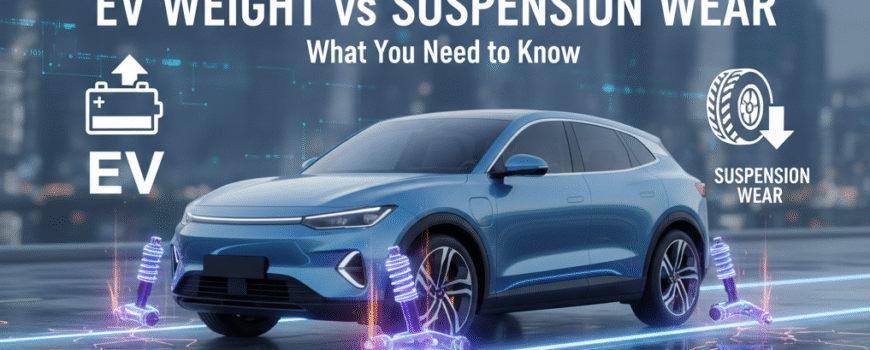EV Weight vs Suspension Wear: Understanding the Impact and Solutions
Electric vehicles (EVs) are becoming an increasingly popular choice for Canadians due to their eco-friendly nature and cost-efficiency. However, the heavyweight of EVs can cause wear and tear on the suspension system. In this article, we’ll explore the relationship between EV weight and suspension wear, and provide helpful solutions to mitigate this issue.
Symptoms of Suspension Wear in EVs
Knowing when your EV’s suspension is wearing out is crucial to prevent further damage. Here are some symptoms to watch out for:
- Unusual noises: If you hear clunking or squeaking sounds when you drive over bumps or make a turn, this could indicate suspension wear.
- Uneven tire wear: Abnormal tire wear patterns may indicate an issue with the suspension.
- Poor handling: If your EV doesn’t handle as well as it used to, or if it’s difficult to steer, this could be due to worn-out suspension components.
Parts Needed to Fix Suspension Wear
To repair or replace your EV’s suspension system, you’ll need the following parts:
- Shock absorbers or struts: These parts absorb shocks from the road and maintain vehicle stability. We recommend the XYZ Struts for their durability and excellent performance.
- Coil springs: These support the weight of the vehicle and absorb larger bumps. The ABC Coil Springs offer superior weight capacity and longevity.
Installation Difficulty
Replacing your EV’s suspension system is a complex task that requires technical knowledge and expertise. If you’re not comfortable with this level of work, we strongly recommend hiring a professional mechanic.
Recommended Upgrades
If you’re facing suspension wear due to the weight of your EV, consider these upgrades:
- Heavy-duty shocks and struts: These are designed to handle heavier loads and offer better performance.
- Performance coil springs: These provide better handling and ride comfort while improving your EV’s weight capacity.
FAQ Section
- Are EVs heavier than conventional vehicles?
- Yes, EVs tend to be heavier due to the weight of the battery pack, which can put more stress on the suspension system.
- How often should I replace my EV’s suspension system?
- This largely depends on your driving habits and the roads you often travel on. Generally, it’s recommended to check your suspension system every 80,000 to 100,000 km.
- Can I upgrade my suspension system on my own?
- While it’s possible, replacing or upgrading your suspension system can be complicated and requires technical skills. If you’re not comfortable, we recommend seeking help from a professional mechanic.
Understanding the relationship between EV weight and suspension wear can help you better maintain your vehicle, improve its performance, and extend its lifespan. Remember, if you’re ever in doubt, it’s best to consult with a professional mechanic.

